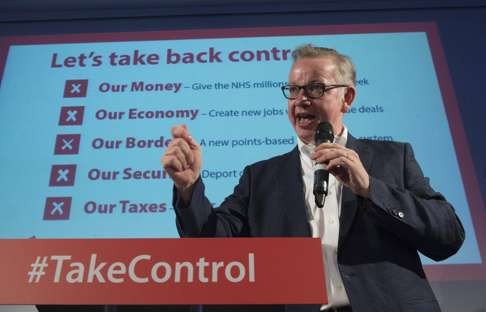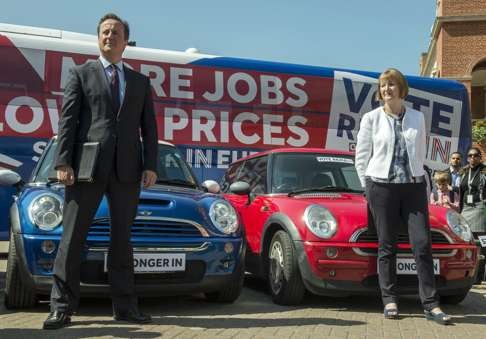
Brexit and Donald Trump have this one thing in common
Both have contributed to the demise of public trust in economic statistics
When did this loathing for economic data start? Maybe it’s been going on forever but more recently it has morphed into a virulent form manifest not just by simple disregard for economic information but a seeming determination to axiomatically regard all this information as being lies.
These thoughts are prompted because I happen to be in London at the moment which, like the rest of Britain, is gripped, or should that be swamped, by the ongoing referendum campaign on the UK’s continued membership of the European Union.
Every day brings with it a new slew of statistics supposedly demonstrating how much better off Britons would be if they made a rapid exit from the EU, and then there is an avalanche of figures embracing dire warnings of what would happen in the event of staying in. Not only is all this very confusing but it also fits nicely into the old maxim that describes data as lies, damn lies and statistics.

Both sides of this debate are guilty of pumping out dodgy data but my impression is that the
Remainers have the better economic figures, aided and abetted by a great phalanx of economists, business organisations and practically every other big league player with a horse in this race.
It may therefore be imagined that this overwhelming backing for staying in Europe from influential and knowledgeable people would swing the debate. However the reality is that if, anything, expert opinion is counterproductive because a mood seems to have taken hold that is, in effect, saying: “we’re fed up being lectured by the elite, we really don’t care what their figures tell us because these people always get it wrong and even when they get it right they always do so in their own interests. The more they pump out figures telling us that this or that will happen, the more we’re going to vote for the other side”.
Were it the case that this populist surge, embracing a war on data, was confined to the United Kingdom it might easily be dismissed as another example of British peculiarity (a well-known phenomenum). However there is clear evidence that the war on data is gathering momentum worldwide.
The current US presidential campaign is a case in point. What we see there is the masterly way that the putative Republican candidate, Donald Trump, simply makes up “facts” as he goes along. While the data confirms that the US economy is growing, that trade remains buoyant and that wages are rising as employment also rises, Trump brushes all this aside as irrelevant and insists that America is broke and that only he can fix it.
One reason why Trump’s cynical disregard of economic facts is able to gain traction is that while the overall national picture looks favourable and gives rise to these not at all bad figures, down on the ground things don’t look so rosy. As ever in big economies there are big disconnects between various components. This does not mean that national statistics are either wrong or manipulated but it does mean that the figures look pretty dodgy to the folks sitting at home without a job and wondering why the Washington elite are telling them that the economy is on the up.

Yet, governments do play fast and loose with figures to varying degrees, none less than the government spokespeople in Beijing who pump out national economic growth targets to the most precise of percentage points, subsequently they emit statistics showing that these targets have been met with remarkable precision. In these circumstances there is rightly cynicism about national data.
Companies are also not shy in playing fast and loose with numbers. Who cannot cite an instance of year-end figures being massaged in ways that may not necessarily provide a flagrantly inaccurate picture of the company’s well being but are most certainly some way from being kosher?

So, there’s no cause whatsoever to be too trusting when confronted with a data set compiled to make some case or other. But there is equally no cause to simply disregard the numbers on the grounds that all statistics are lies. Most worrying however is the growing feeling that the numbers really do not matter because they only exist to serve a purpose far removed from the original idea that solid data is required to provide an objective tool for analytical purposes.
Meanwhile I’m sitting here in London with someone, who sort of sounds authoritative, saying on the radio that everyone in Britain will be xxx pounds poorer if they do not scuttle off to the ballot box and vote to stay in the EU. I write xxx because you can insert more or less any figure you like here; this free and easy use of numbers does not call for precision anymore.
Stephen Vines is a Hong Kong-based journalist and entrepreneur

